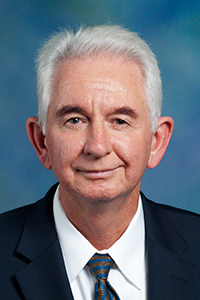The Brain Continues to Develop in Young People With Schizophrenia
The Brain Continues to Develop in Young People With Schizophrenia

A research team has discovered something important—and encouraging—about what happens to the brain in the period immediately following the onset of schizophrenia. Based on analysis of functional MRI brain imaging, they conclude that during the first one to two years following diagnosis, the brain continues to follow its normal developmental path in most young patients.
Such patients do not show deterioration or disruption of the developmental process, the researchers say. This is important since the illness typically manifests during adolescence or young adulthood, a period crucial in the maturation of the brain. “Patients show ongoing brain development comparable to that of healthy controls [of the same age], highlighting the possibility for plasticity and developmental capacity” that might be boosted by therapy.
In arriving at their conclusion, the team, led by Foundation Scientific Council member Cameron S. Carter, M.D., of the University of California, Davis, focused on cognitive control. This refers to brain functions that allow information processing and behavior to vary adaptively from moment to moment depending on a person’s current goals, rather than remaining rigid and inflexible.
Impairments in cognitive control are associated with deficits in attention, memory, language comprehension and emotional processing, and have long been observed in people with schizophrenia.
The essential point in the newly published research, which appeared October 3, 2018 in JAMA Psychiatry, is that the brain continues to develop after schizophrenia is recognized. In a group of 180 young participants aged 12 to 25, 87 of whom had been diagnosed with schizophrenia, patients performed less well than healthy controls of the same age in performing tasks reflecting cognitive control. Yet both groups showed improvements when followed up over the next two years, reflecting the fact that their brains continued to develop.
“Patients continue to benefit from ongoing brain maturation,” say the researchers, who included 2012 BBRF Young Investigator Tara A. Niendam, Ph.D., the paper’s first author, also of UC Davis. The team also included Daniel Ragland, Ph.D., a 2004 BBRF Independent Investigator; and Marjorie Solomon, Ph.D., a 2009 BBRF Young Investigator. Dr. Carter, the senior team member, is a 2001 Klerman prizewinner, 2007 Distinguished Investigator and 1994 Young Investigator.
The team suggests that future research should examine the effects of various interventions, such as cognitive training, psychotherapy, medication and supported education and employment on the trajectory of cognitive control deficits in schizophrenia and other illnesses that involve psychosis.
If you found this article interesting, you may find this Meet the Scientist Webinar interesting: Prefrontal Cortical Circuits in Schizophrenia: Molecular Vulnerabilities, and Clues for Treatments



